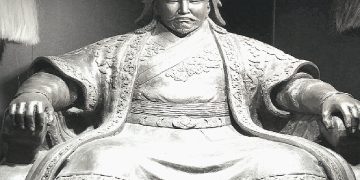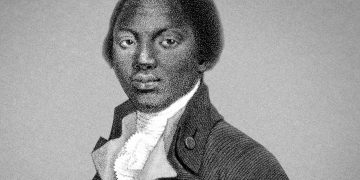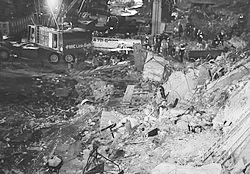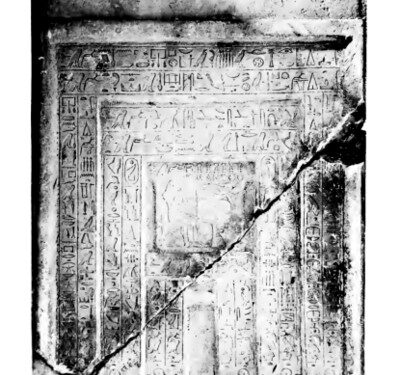Sources and Meaning of Teachings
Teachings are a type of ancient Egyptian literature. The text of the “Precept” is preserved in three papyri from the time of the middle of the New Kingdom. The best preserved of them is in the State Hermitage, in St. Petersburg, two others are kept in the Museum of Fine Arts named after A.S. Pushkin in Moscow and in the library of the Copenhagen University. In addition, the text of this “Teaching” on an ostracon (pottery shard) is available at the French Institute of Oriental Archeology in Cairo.
A papyrus from the library of the University of Copenhagen (Denmark), on which “The Teaching of Merikar” is written. By its appearance, we can judge the safety of the document.
The Lecture has been repeatedly translated into Russian, but the correct understanding of many of its fragments remains in doubt. A historically accurate translation of this remarkable monument of political thought has not yet been created. The existing translations of even venerable Egyptologists are so contradictory that sometimes it seems as if they were made from several different “Teachings of Merikar”. In addition, these translations are often stylistically unsophisticated, despite the fact that the literary merits of the original are beyond doubt, otherwise, tens, and perhaps hundreds, of Egyptian scribes would not have rewritten it over the centuries.
The name of the tsar teaching his son has not survived. Scientists believe that it was the pharaoh of the X Heracleopolitan dynasty – Kheti III (and possibly Kheti I), who ruled at the end of the XXII century. BC. The present lesson is a political treatise depicting social relations during the reign of the Heracleopolis dynasty. The interests of the ruling class are clearly expressed in it, there is evidence of very aggravated contradictions between the rich and the poor, as well as the state structure of ancient Egypt at the end of the 3rd millennium BC.
The compiler of the teaching warns the young heir against the enemies of the royal power. The most dangerous enemies, in his opinion, are the poor. The one who has no property, according to the author of the teaching, is a rebel. The king must be harsh towards them. The author of the teaching advises the heir to rely on the rich, respect and uplift the nobles, protect their property and not take their lives, for they will “fulfill your ordinances.”
Among the nobility, on which the Heracleopolis king relied, strong nedjes occupied an important place (the word “nedjes” means “small”), since by this time wealthy, wealthy people – “strong nedjes” – had emerged from the rank and file free. Therefore, in the teaching, there is advice not to elevate a person for his origin, but only for his merits, “according to his deeds.”
The treatise deals with a professional army of young people. The lecture gives a new interpretation of the royal power: the king is not only a “great god”, but also a good shepherd of the “flock of God”, a sage who cares about his people. The tsar is demagogically depicted in the teaching as the protector of the weeping one and the widow. The document also indicates the functions of the ancient Egyptian state apparatus:
- keep the oppressed part of the population in subjection with the help of troops and prisons (kill the rebel, “punish others with blows and imprisonment”);
- to protect and strengthen the borders of the state.
The author advises the heir to build temples – “monuments for God”, since in the temples the priests preached the divine origin of the king and royal power.
The political and social situation of Ancient Egypt at the time of writing the lecture
Preparing his son for the throne, the aged and experienced Kheti understood that even during his strong reign, the authority of the sovereign’s power was much less than in the stable and prosperous Old Kingdom for centuries. At this time, severe droughts occurred year after year in the south of the country, the former irrigation system of the southern nomes was in a deplorable state, and the economic situation of the northern nomes did not allow the king to provide the South with substantial food aid.
The famine in Upper Egypt was so terrible that it drove people to eat human flesh. The inevitable consequence of hunger and impoverishment was widespread violence, rampant robberies and robberies. Among the people, the number of “correct in heart” decreased, and “obstinate in heart” began to prevail. The main task of the military detachments of the nomes was not the fight against the external enemies of the country, but the suppression of the atrocities of numerous thieves’ gangs. At the same time, the rulers of the southern nomes, deprived of effective support from the central government, were suspicious and cruel, mass executions became commonplace in political life there. In addition, the integrity of the country was threatened by the imperious ambitions of the Theban rulers, who only formally did not accept the titles of kings, but ruled their dominions autocraticly.
All this undermined the ideological foundations of the power of the “Heracleopolitans”, who, like the pharaohs of the Old Kingdom, had a divine status and were supposed to serve as guarantors of universal order and legality in Egypt, the impeccable performance of religious rituals, including sacrifices that ensure the favor of the gods and fertility. soil. After Merikar, the Heracleopolis monarchy entered a period of irreversible, rapid decline, and at the end of the XXI century BC. Egypt was united under the rule of the Theban king Mentuhotep I of .
Highlights of the teaching
… An instigator is a harmful one, destroy him, kill (him), erase his name, (destroy) his loved ones, destroy the memory of him and his people who love him. A restless person is trouble for the townspeople, because he creates two parties among the youth …
May you be righteous before God … Be skillful in speech … and you will win, for the tongue is … the weapon (of the king). Speech is stronger than any weapon … The sage is (refuge) for the princes, they will not overcome him, it will not happen (lie) in his presence, for the truth comes to him ready, like the saying of the ancestors.
Follow your fathers, your ancestors …
Respect the nobles and take care of your people. Strengthen your boundaries and your limits, for it is good to create for the future … It is a crime that seizes the earth for itself without law. He who envies (that) (what) others have is a fool, for (life) passes on earth, it is not long, but who leaves a (good) memory of himself is a lucky man … Is there a (person) who lives forever? ..
Exalt your nobles, and they will fulfill your decrees. The one who is well off in his home is not biased, for he is rich and does not need. The poor man does not speak according to the truth. It is unfair to say “I want!” He is addicted to the one he loves, he leans towards the owner of his offerings (i.e. the poor man goes over to the side of the one who rewards him). A mighty king who has an entourage is famous for a rich noble. Speak the truth in your home, and the nobles in the country will fear you …
Create the truth and you will remain on earth. Calm down the crying one, do not oppress the widow, do not remove the person from the property of his father, do not remove the nobles from their places. Do not kill – this is not good for you, but punish with blows and imprisonment, and then this land will prosper, except for the rebel, whose plans are open, for God knows the instigator and God punishes his sins with his blood … But do not kill a person whose dignity you know …
Raise young warriors, so the capital will love you … Raise your nobles, advance your (warriors), increase (the number of) young warriors who follow you, supplying property, endowing with land, rewarding with cattle.
Do not make a distinction between the son of a noble and a commoner, attract a person according to his deeds, so that all crafts will be done …
Protect your border, build your monuments. Detachments of workers are useful to their master. Create (beautiful) monuments for God; it will make the name of the person who will do it live …
There are no enemies within your borders! .. I have pacified the entire West, right up to the expanses of Fayum … A rebel will not rise, (until) the Nile does something bad to you, it will not work (that is, if there is no spill). The gifts of the North will be in your hand …
So talk about a nomad. Here is a despicable Asiatic, a bad place in which he is, – scarce water, difficult because of the abundance of trees; the way it is difficult because of the mountains. He does not live in one place, his legs wander because of lack. He has been fighting since the time of Horus (since the establishment of kingship in Egypt). He does not win, but he is not defeated either. He does not herald the day of battle, like a thief avoiding troops …
Build fortified settlements in the North. The name of a person is not a little in his actions. They do not harm the fortified city …
The ruler of Both Shores (i.e. all Egypt) is wise, and the king, possessing nobles, is not an ignoramus, he is reasonable from birth, and God exalted him before millions of people …
Save people, the flock of God … He created for them the rulers of the born – support to support the back of the weak. He created a spell for them, as a weapon to ward off the coming (troubles), dreams at night and day. (But) he killed a rebel, just as a man smites his son for his brother. For God knows every name.
Do not do evil with my lips, which give all sorts of rules about the king! Direct your face (straight), stand like a man! .. Do not kill anyone close to you … Arouse love for yourself throughout the country. Good behavior is memory! ..
Here, I told you my best thoughts, fix them firmly in front of your face!












